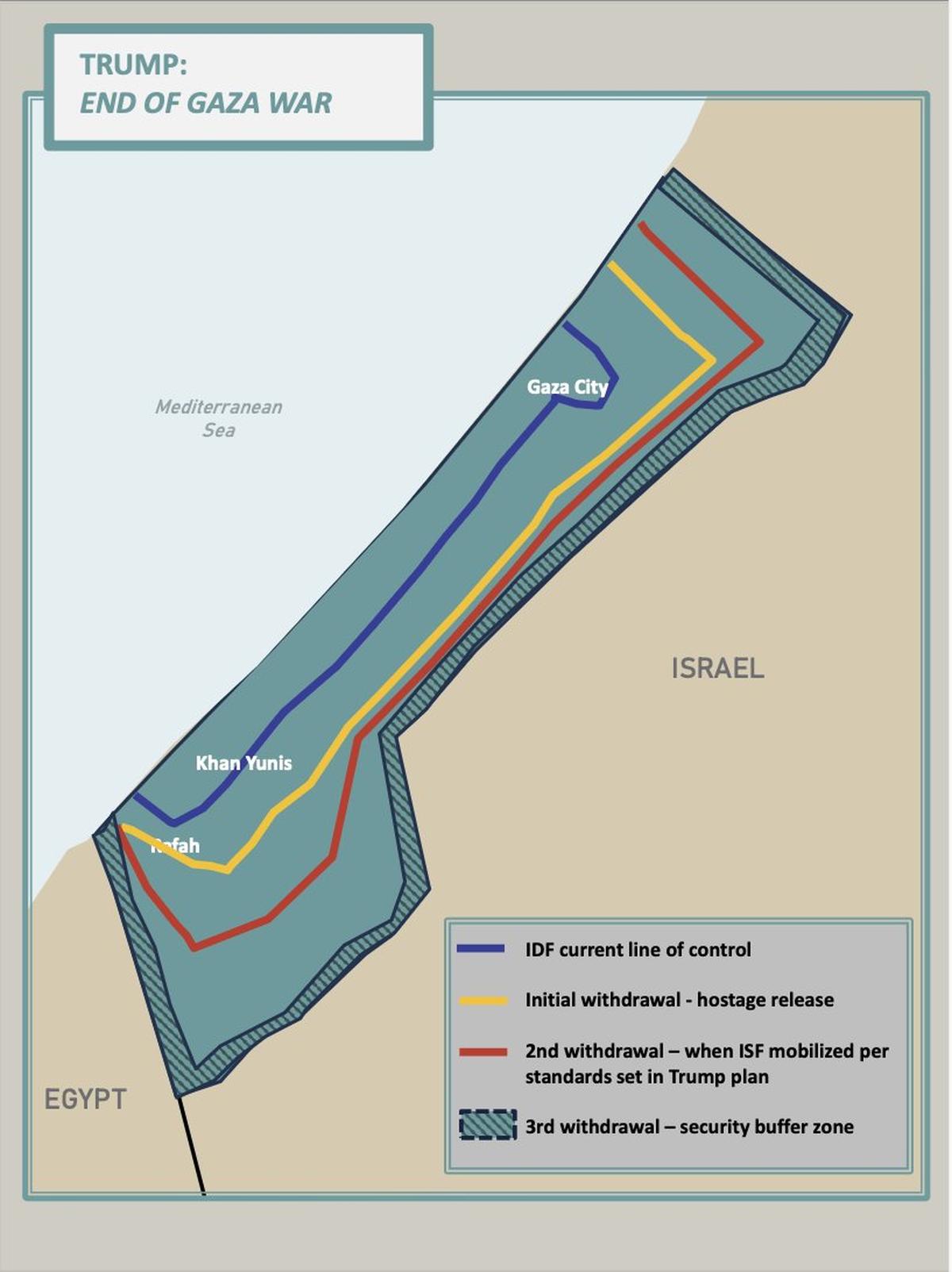The Dining Room of the White House carried the weight of history on Monday (September 29, 2025) afternoon as President Donald Trump and Prime Minister Benjamin Netanyahu unveiled a sweeping Gaza peace proposal. But it was a quieter announcement tucked into the ceremony that caught seasoned diplomats off guard: Israel and Qatar, two nations long at odds, had agreed — with Washington’s hand on the scale — to form a trilateral mechanism aimed at repairing ties and coordinating security.
The breakthrough was set in motion earlier, during a phone call that joined Mr. Trump, Mr. Netanyahu, and Qatari Prime Minister Mohammed bin Abdulrahman Al Thani.
For full coverage: Israel-Palestine conflict
According to the White House readout, Mr. Netanyahu expressed “deep regret” over an Israeli missile strike that killed a Qatari serviceman during an operation against Hamas. He promised such an attack would not be repeated. Mr. Al Thani accepted the apology, a rare moment of public conciliation between the two governments.
Contours of new channel in place
By the time Mr. Trump and Mr. Netanyahu appeared together before the press, the contours of the new channel were in place. “We agreed to launch a formal trilateral mechanism between Israel, Qatar, and the United States to enhance mutual security, correct misperceptions, and avoid future misgivings,” Mr. Trump said, casting the arrangement as a natural extension of his broader Gaza peace initiative.

The move marked an unusual shift for Qatar, which has long navigated a delicate balance in the region. Doha hosts senior Hamas officials and has acted as a mediator in hostage negotiations. At the same time, it is home to the most extensive U.S. air base in the Middle East. For Israel, those ties have been a source of deep suspicion. Netanyahu himself acknowledged there were “quite a few” grievances with Qatar but added that putting the relationship on “a different footing” would benefit everyone.

White House releases Gaza peace plan on Monday, September 29, 2025. Photo credit: X/ @RapidResponse47
For Mr. Trump, the trilateral channel became another brick in the edifice of his peace plan. He described it as evidence that Arab and Muslim states were prepared to step up, not only to pressure Hamas into disarmament but also to shoulder responsibility for Gaza’s reconstruction. He listed Saudi Arabia, Egypt, Turkiye, Indonesia, and Pakistan as among those already committed.
The President, never shy of framing himself as the indispensable figure in Middle East diplomacy, leaned into the moment. “Qatar’s leadership wants peace,” he said. “His people acknowledge the critical role they’ve played as mediator.” It was a striking contrast to years of mistrust, and an acknowledgement that Qatar, with its financial reach and back-channel credibility, could not be left out of any postwar settlement.

Netanyahu strikes firmer note
Mr. Netanyahu struck a firmer note, reminding his audience that Israel’s goals had not changed. He insisted that every hostage would be returned, that Hamas would be fully disarmed, and that Gaza would be permanently demilitarised before Israel withdrew its forces. “This can be done the easy way or it can be done the hard way,” he said. “But it will be done”.
Mr. Al Thani did not speak publicly after the call. Still, the White House said all three leaders “underscored their shared commitment to working together constructively and clearing away misperceptions”.
For a country often accused by Israel of fueling instability, the statement alone signalled a modest shift.
Analysts noted that the trilateral mechanism, while procedural on paper, could prove politically significant. It offers Israel and Qatar a structured way to address grievances and places Washington at the table as arbiter. By linking it directly to the Gaza peace plan, Trump effectively tethered Qatar’s regional role to the success or failure of his initiative.
The unanswered question remains Hamas. Mr. Trump said he believed the militant group might accept the plan, but he also offered a blunt warning. “If not, Israel would have the absolute right, and our full backing, to finish the job,” he declared.

As the ceremony wound down, Mr. Trump and Mr. Netanyahu left the podiums without taking questions, the air still charged with the dual announcements — a peace plan that aspires to reshape Gaza and a diplomatic track that, if it holds, could redraw relations between Israel and one of its most complicated neighbours.
Whether Hamas accepts the offer, and whether Qatar and Israel can sustain the new mechanism, will determine if this moment is remembered as a fleeting White House flourish or the start of something more enduring.
This article is published in an arrangement with 5WH.
